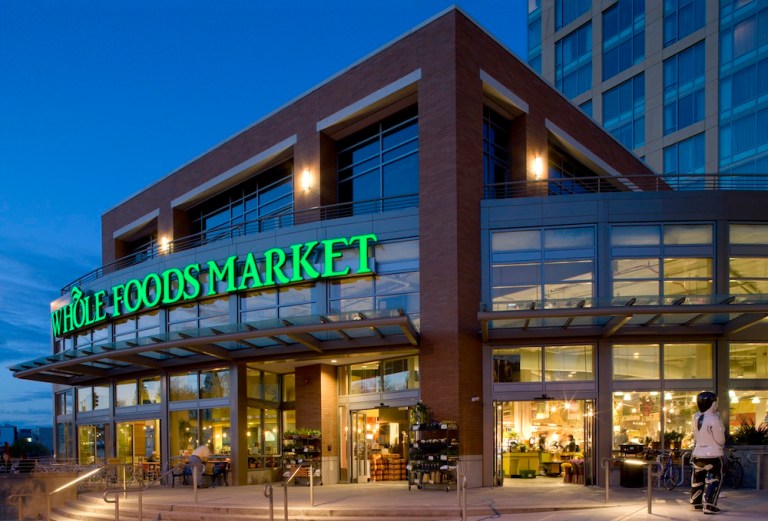Changes At Whole Foods Post Amazon Buy Rankles Workers, Suppliers

One year in, the changes at Whole Foods Market, post the acquisition by Amazon, are rankling some of the grocery giant’s employees and its supply chain. The Wall Street Journal (WSJ) reported that some suppliers are upset with the rates that are being levied by Whole Foods. Amid layoffs, reported the publication, some workers want unionization.
The $13.5 billion deal is one that has led to higher sales at Whole Foods, it is true. New programs being rolled out include 10 percent discounts for the Amazon Prime members, along with faster delivery options. Among other shifts, noted by the WSJ: Amazon workers have been hired to work at Whole Foods, even as the latter firm has been laying off hundreds within its own ranks, tied to in-store marketing positions, with their last day to be Monday.
Along the supply chain, some suppliers have seen a boost to their top lines, along with the changes wrought by Amazon. Those beneficiaries include Kashi, the cereal company.
Yet, there is some discontent along that very same supply chain. Whole Foods has tacked on 3 percent fees that come with restocking activity and hold promotions for those supplier. The WSJ noted that the charges apply to vendors that sell $300,000 or more in products annually and are higher charges than are seen with other grocery chains. That fee increase had been in the works before the Amazon acquisition. The company, reported WSJ, states that the fee and marketing can be gateways to higher sales for suppliers.
“We are excited about the new growth opportunities that exist as we continue to innovate with Amazon,” said a Whole Foods email, sent to vendors who hadn’t yet signed on. “Unfortunately, we have yet to receive your full commitment to support the program.”